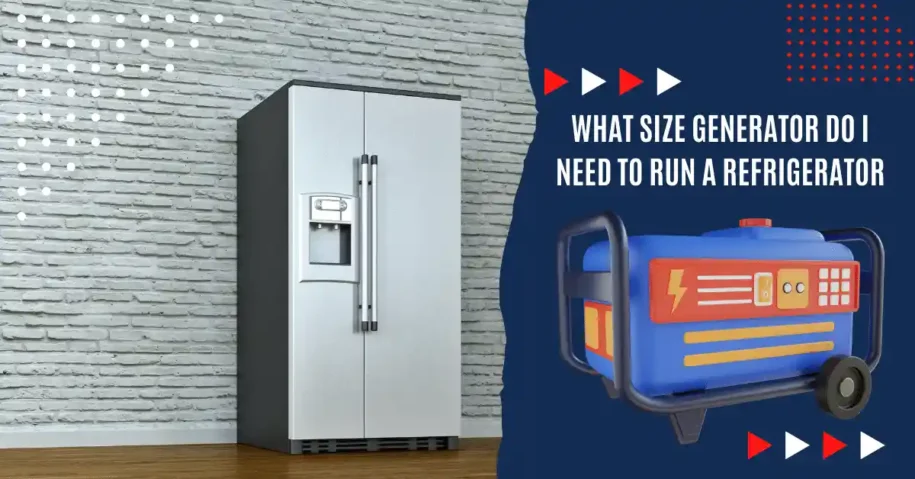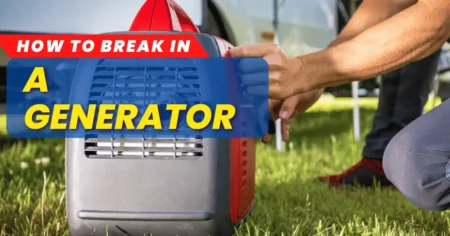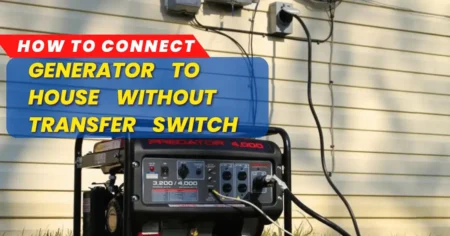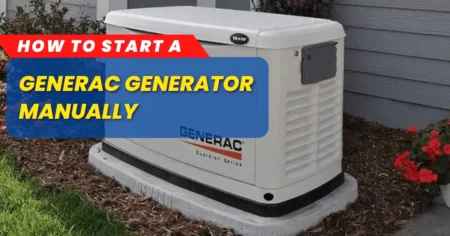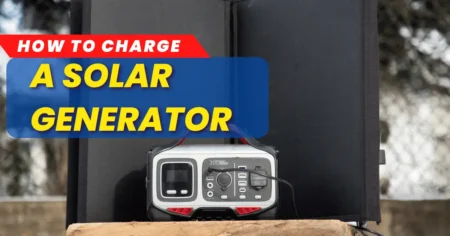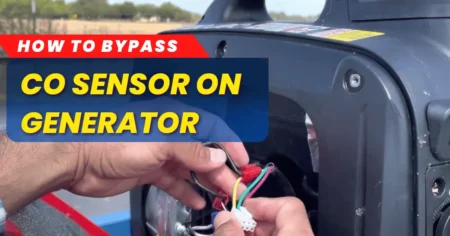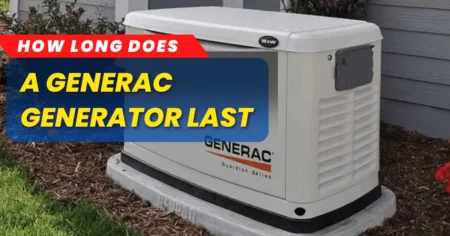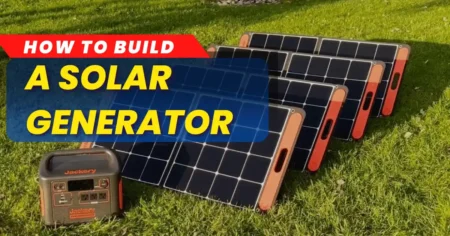Have you ever wondered what will happen to the food in the refrigerator if your house runs out of electricity? It will not affect anything for a few hours. But for long shortcoming, it can cause a drastic situation. That’s why it’s crucial to plan for such unfortunate events.
We believe that house management is a complex task. It needs proper planning and supervision to deal with unforeseen events. The arrangement of alternative solutions is always a blessing, particularly when it comes to electric appliances. Well, turning off the power will not affect other machinery except freezers. As food is stored in it, a power cut even for a few days can cost you a lot.
A generator is the best way to get rid of this inadequacy. But of course, a small generator will not support your refrigerator. So, what do you think the size of the generator is used to run the refrigerator and freezer?
You are in the right place if you are looking for the answer. This article will teach you about power and the perfect generator type for your fridge. We will also discuss the cautions to operate your generator and much more. Let’s get straight into it: What Size Generator Do I Need to Run a Refrigerator and Freezer?
How Many Watts of Power Does Your Generator Need?
The appropriate working of your freezer depends on the running watts of the generator. Also, how you use the machinery can affect the working. According to settings, a generator provides continuous power at its running watts or units.
Starting watt is the initial energy required to start your appliances smoothly. Similarly, running watts require continuous energy for consistent functioning after turning on.
Before switching your appliances to a generator, check the power watt and whether it works. Before selection, check the running power watt of your refrigerator. For proper functioning, the power of the dependent has to be a little higher. Select one with equal or higher running or peak power watt than your fridge.
Do you know that fridges generally need 1000 to 2000 watts as their starting energy? So, any generator with a starting power of 2000 watts is used to provide a smooth power flow. Now, you can confidently select any originator with 2000 watts of starting power to operate your fridge.
Various Types of Generators- Explore the Power Spectrum
Thousands of different generators with innovative functions are available in the market. All you have to do is to select the best fit for you. Let’s have a look at some famous types:
● Solar Generator
Solar generators are known as electricity stations and are perfect for indoor settings. They are the best source of converting DC power in batteries to AC power, supplying power to external loads. They are known for their environmentally friendly manufacturing as they cannot cause any pollution or smoke. Moreover, they are incredibly silent don’t cause fumes, and are best for indoor use.
They work by storing energy and can recharge batteries. However, modern solar generators have an amazing “pass-through charging” feature. It powers the external devices or loads and restores the panel batteries.
After this invention, an astonishing innovation was made: large UPS units. They are sustainable and can automatically switch from the main source to the battery setup. Well, they are just like generators but are used for emergency freezers due to the switching advantage. A separate boundary is used between solar generators or power plants and UPS to ensure safety.
● Power Generators
Unlike solar, Power generators are only designed for outdoor use away from housing. That’s because of their harmful fumes, smoke, and loud sounds during their functioning. Moreover, they pollute the environment by releasing extremely dangerous Carbon Monoxide. These machines have a proper manual with detailed features and cautions to avoid accidents.
Another disadvantage of power generators is fuel consumption. They work by using gas, LPG, gasoline, or diesel as fuel. Also, you can use a mixture of two fuels for smooth running. You can also get dual-fuel or tri-fuel power generators as they have more running watts and are flexible to operate.
Above all, they are more affordable. Moreover, you must fill up the gas or fuel tank before turning on the power generators. Purchase a propane bottle to switch if the existing power dies immediately.
Is It Possible For A Generator To Damage A Refrigerator?
According to statistics, numerous appliances and refrigerators experience fuse damage or short-circuit because of generator overload. Under various situations, machinery was unable to handle the heavy power supply. It results in wiring damage, causing combustion. This damage also affects the generator or any other gadgets connected to it.
Similarly, a high-power freezer can damage the generator. When the appliances run beyond certain running watts, they can destroy the generator’s machinery or other connected devices. This happens because of input and output imbalance. That’s why a compressor is used with fridges or deep freezers. They compress the rise and fall of load and maintain temperature.
Besides power output, you must consider other facts before choosing.
Some Cautious Advice Regarding Powered Refrigerators
Here are some factors to check before connecting a generator to power your refrigerator or freezer:
- Check the running watt of both machines. Also, check the operating units of any other device you plan to connect.
- Examine the working after every few hours
- Increase the generator’s power to full before turning off the supply
- Get an insertion unit commonly known as an enclosure for a generator. It protects the machine from rain, unnecessary heat, or harsh weather. As rain or scorching sun, both are hazardous for machinery.
- Use an inverter generator. It saves energy and is ultimately reliable.
- If you use a power generator, never fill the fuel tanker while the generator is on. It can cause severe combustion and is extremely hazardous.
- Maintain the air circulation for the fridge while in connection.
- Avoid using generators for worn-out fridges. They consume more energy and cost you more money.
- Call an electrician if you notice any irregular behavior or smell from any machine.
Factors to Consider Before Buying A Generator For A Refrigerator
Ask a few questions to yourself and analyze the exact size of the generator for your fridge or freezer:
- What is the power output or running watt of my refrigerator?
- What size should I select?
- Which brand’s generators are performing well?
- Which features do you need?
- How many appliances are you going to connect?
- Do you need outside or inside settings?
- Do you need a fuel or fuel-less setup?
- How often do you have to use the generator?
- Do you need to ground it or not?
- Should you buy one with a large UPS for automatic switching or a simple one?
- Are you interested in a permanent or stand generator?
- Are you buying for residential or commercial use?
- Are you ok with unnecessary smoke or the sound of the machine?
After considering all the questions, check different brands offering generators. Read the features and output of all choices. Consider the budget and select one according to your daily requirements.
How Much Does it Cost to Run A Refrigerator on a Generator?
However, generators are highly expensive, but they surely help you in the long run. During sudden or long outrages, they provide a lot of ease for everyday work. Their price depends on what size you need to run a refrigerator or freezer. The higher the output, the more the pricing. Generally, it costs $200 to $20,000 according to your needs and quality.
Top 5 Generators to Run a Refrigerator
When it comes to generators for a fridge, those producing at least 3000W of starting wattage are best. Look at our top recommendations before selection:
1- Champion 3400W Dual Fuel Inverter Generator
Champion Dual Fuel is a flawless inverter generator. It comes with a 120V voltage output and 3400W power. It provides enough starting wattage to run a refrigerator and freezer. Also, the wheels make it ultimately portable.
However, champion 3400W has a limited Amp. But For powering heavy loads it comes with a paralleling kit. Champion dual-fuel (gas and propane) is a perfect choice for an affordable generator.
2- WEN 56380i 3800W Inverter Generator
WEN is an affordable choice and the perfect size generator to run a refrigerator. It comes with more than 3000W to power up heavy loads. Also, it is extremely portable with a long run time.
However, it doesn’t power up an AC but is a despicable option to run fridges, phones and computers smoothly. You can get a digital load and fuel display. Also, WEN reduces extra noise with incredible noise filters.
3- Briggs and Stratton P3000
Stratton P3000 is an incredible option to back up your home power or run your fridge. It comes with 3000 starting watts and 2600 running watts. P300 has innovative technology and a smart fuel display. The generator has an 80db noise level and can be used in parallel with others.
4- EGO Power 3000W Nexus Power Station
Ego power is used as both indoor and outdoor generators. It comes with 3000W running power to power up your sensitive appliances. The best thing about EGO is its pollution and noise-free manufacturing.
It’s a bit pricy, but the latest display and environmentally friendly technology compensate for the price.
5- Generac 7127 3500W Inverter Generator
The Generac 7127 inverter is a portable and lightweight generator with smooth paralleling ability. It has more than 3500W output wattage and a quiet functioning system. It uses gasoline as fuel and is the best outdoor generator to run a refrigerator or freezer. Moreover, it comes with a USB port to power your gadgets and is readily available on Amazon.
Final Verdict
In this article, we have a detailed discussion about sizing, features, and cautions regarding generators for refrigerators. Experts say solar generators are best for running a fridge or freezer during blackouts. Because they are more energy efficient, cause no pollution or unnecessary noise. They are a bit pricey compared to power generators. But after purchasing, you didn’t have to spend on fuel.
Finally, whatever you are buying always operate with care. Read the manual carefully and check the wiring before starting. Always use a compressor to balance the running or starting watts of both machines. Don’t overload the generator with frequent appliance connections. When overloaded, disconnect the external load. Select the size of generator you need to run a refrigerator or freezer by checking your fridge’s running watt.
Frequently Asked Questions
How many refrigerators can I run on a single generator?
The biggest size generator can power 20,000 fridges at once. But as they require extra power to start you cannot connect that many devices. A 2KW generator can operate 2 refrigerators simultaneously.
What is the necessary power to operate a fridge on the generator?
A normal home fridge needs only 350 to 780 watts per hour to function smoothly. Well, it also depends on the fridge, freezer, and generator or fuel consumption size.
How much time does it need to install a generator?
For permanent installation, it takes at least two days. Also, this whole process can cause disruption of the electric supply at your place.

